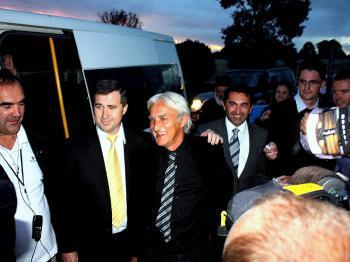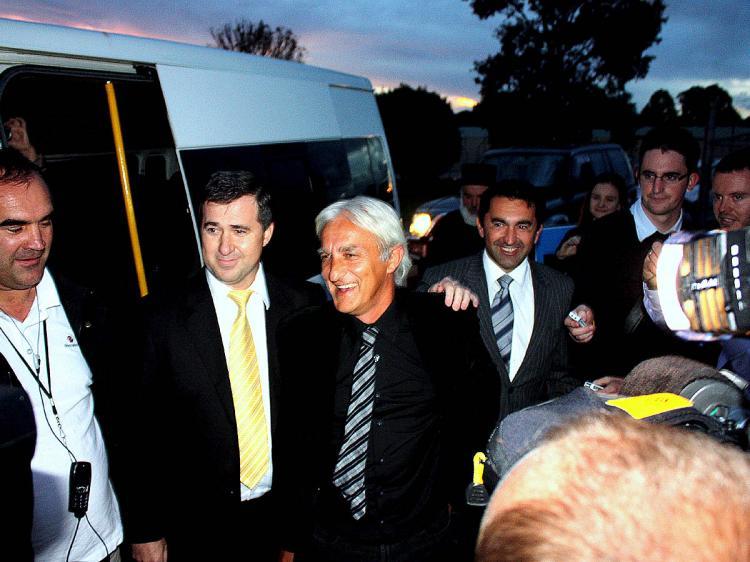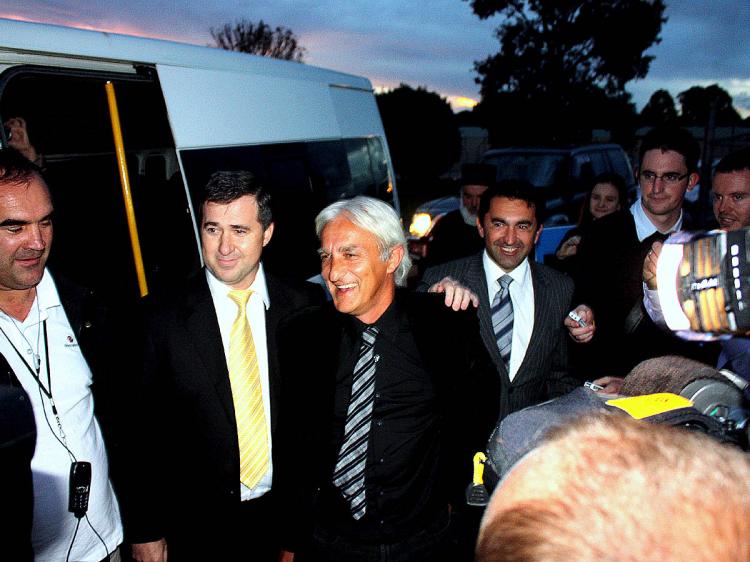An Australian man accused of war crimes by the Croatian government is fighting his extradition, and fighting for the right to defend his innocence before an independent legal system.
Daniel Snedden, also known as Captain Dragan, was a high profile Serbian commander who is considered a Serbian folk hero.
Snedden was imprisoned for 3.5 years in Sydney’s Parklea jail while appealing extradition to Croatia, the land of his former adversary. Snedden is wanted in Croatia for alleged war crimes during the dismemberment of the former Yugoslavia in the early 1990s.
In 2005, a front-page article in The Australian accusing Snedden of war crimes in Bosnia triggered a chain of events. Snedden filed a defamation case against News Ltd. for the article, which a jury found to be defamatory in 2007. The Croatian government issued an extradition request and at the discretion of the then-Attorney General Phillip Ruddock, Snedden was arrested in 2006 and imprisoned without formal charges and without the ability to prove his innocence.
Australia’s “no evidence” law prohibits Snedden from providing evidence against the accusations. However, he was able to appeal his extradition based on the grounds that he would receive an unfair trial should he be extradited to Croatia.
“I believe there would be a show trial with thousands of witnesses who would swear on their mothers’ graves that I did all kinds of things. … I would be found guilty and suffer all kinds of tortures,” Snedden told The Epoch Times.
In 2009, Snedden won his appeal and the federal court ordered his release. The Croatian government then appealed the release. The case will be heard in Canberra on March 29.
In 2001, Snedden gave evidence for two weeks against Slobodan Milosevic at the International Criminal Tribunal for the former Yugoslavia.
According to Australia’s “no evidence” model of extradition, a country seeking extradition does not need to provide any evidence of guilt, nor can the accused provide evidence of their innocence.
Daniel Snedden, also known as Captain Dragan, was a high profile Serbian commander who is considered a Serbian folk hero.
Snedden was imprisoned for 3.5 years in Sydney’s Parklea jail while appealing extradition to Croatia, the land of his former adversary. Snedden is wanted in Croatia for alleged war crimes during the dismemberment of the former Yugoslavia in the early 1990s.
In 2005, a front-page article in The Australian accusing Snedden of war crimes in Bosnia triggered a chain of events. Snedden filed a defamation case against News Ltd. for the article, which a jury found to be defamatory in 2007. The Croatian government issued an extradition request and at the discretion of the then-Attorney General Phillip Ruddock, Snedden was arrested in 2006 and imprisoned without formal charges and without the ability to prove his innocence.
Australia’s “no evidence” law prohibits Snedden from providing evidence against the accusations. However, he was able to appeal his extradition based on the grounds that he would receive an unfair trial should he be extradited to Croatia.
“I believe there would be a show trial with thousands of witnesses who would swear on their mothers’ graves that I did all kinds of things. … I would be found guilty and suffer all kinds of tortures,” Snedden told The Epoch Times.
In 2009, Snedden won his appeal and the federal court ordered his release. The Croatian government then appealed the release. The case will be heard in Canberra on March 29.
In 2001, Snedden gave evidence for two weeks against Slobodan Milosevic at the International Criminal Tribunal for the former Yugoslavia.
Australia’s ‘no evidence’ Legal System
According to Australia’s “no evidence” model of extradition, a country seeking extradition does not need to provide any evidence of guilt, nor can the accused provide evidence of their innocence.







